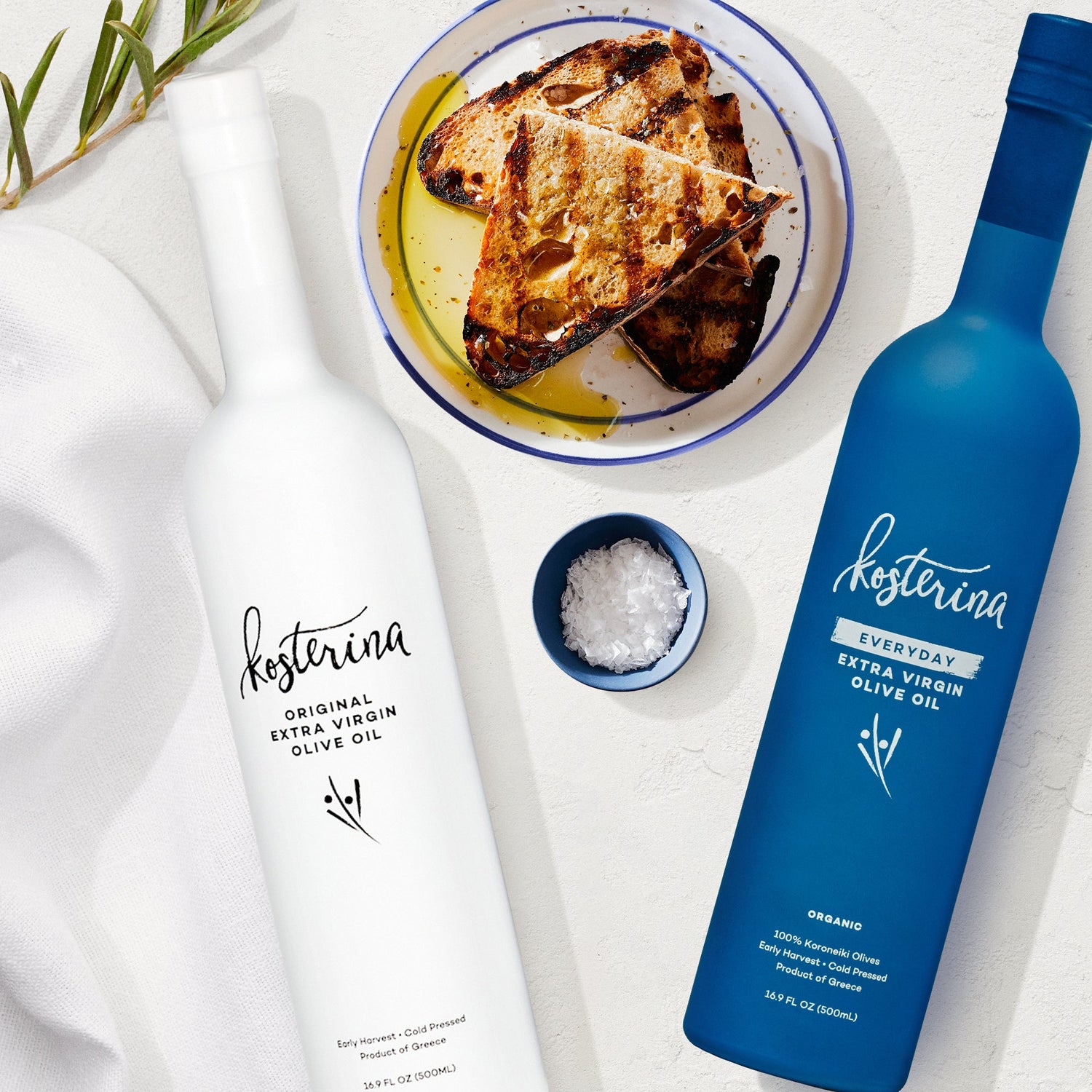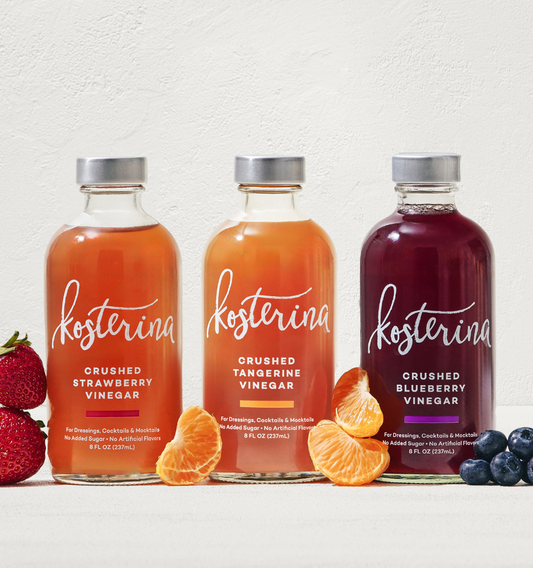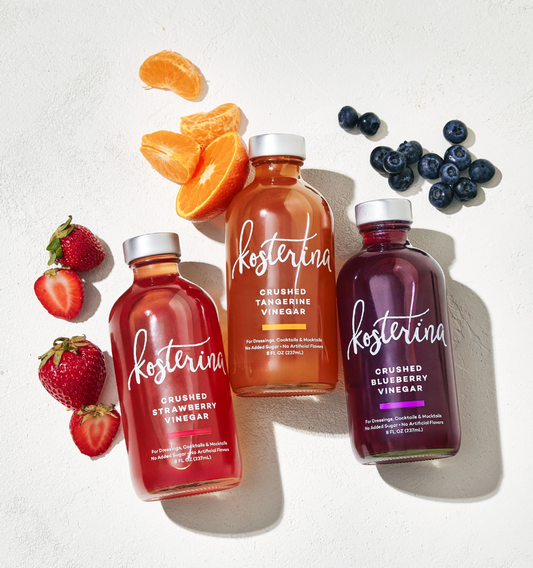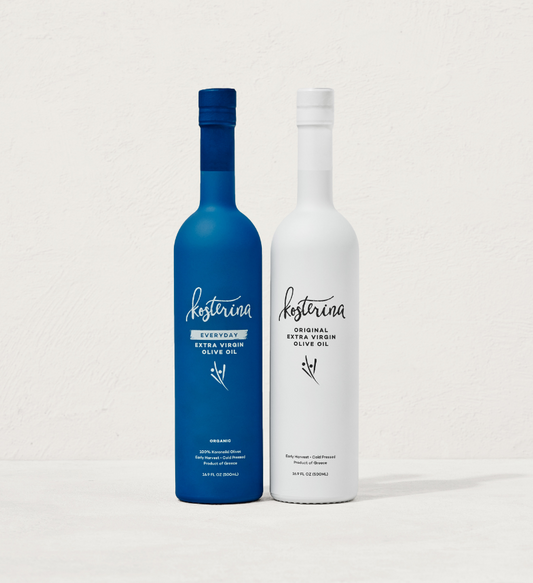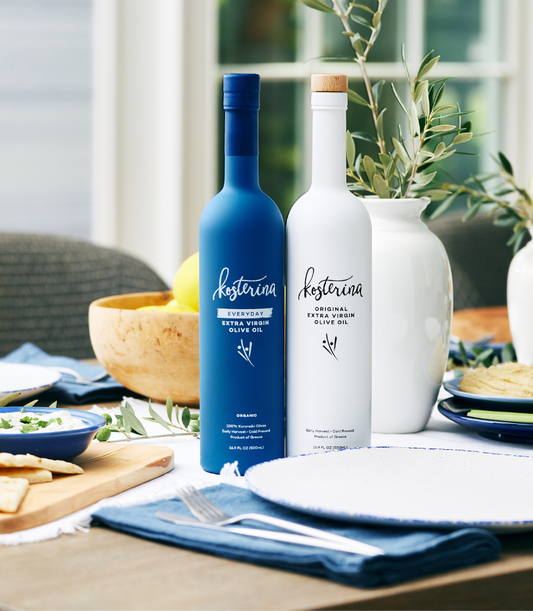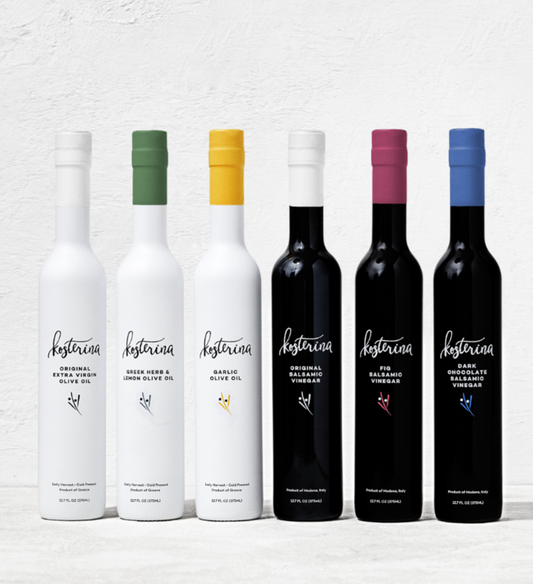Dear Kosterina Family,
In a world constantly buzzing with fad diets and supplements, it's easy to overlook what lies at the heart of our well-being – the food we eat. The right foods can mitigate inflammation, support cognitive function, and even contribute to emotional well-being
Furthermore, studies are constantly being released on the direct impact of what we eat and our mental health. While recommendations for nutrition and its connection to brain function are still evolving, we can see a growing correlation between clean eating and positive mental health. Today, we dive into this topic a little deeper.
What do we know right now?
- Healthy gut for a healthy life: Healthy gut bacteria is paramount to a healthy production of serotonin, a powerful hormone that helps regulate our sleep, appetite, mood, and pain inhibition. A healthy gut can increase the absorption of our food's nutrients, decrease inflammation, and ultimately better fuel our brains to function correctly. So, let’s keep those guts healthy.
- Eat Natural, Unprocessed Foods: We know that whole foods, in their natural and unaltered state are nutrient powerhouses, with benefits that processed foods simply can't match.Fruits, vegetables, whole grains, lean proteins, nuts, and seeds are brimming with vitamins, minerals, antioxidants, and fiber that contribute to optimal bodily function. These nutrients work in synergy to support immune health, energy production, cellular repair, and overall well-being. Further research is even starting to suggest that a whole-food diet, rich in micronutrients, may even have positive effects on mental health issues such as anxiety and attention disorders.
- We can learn from areas of the world where people are the happiest and living the longest. This study summarizes research that suggests a correlation between the Mediterranean Diet and a decreased risk of depression. Traditional diets tend to be lower in processed foods and higher in vegetables, fruits, whole grains, fish, and plenty of extra virgin olive oil :). These are whole ingredients that help feed the good bacteria in our gut while containing brain-fueling nutrients. You can read our blog post here on all the incredible benefits of the Mediterranean diet including how it can slow cognitive decline. In an August 2016 study, researchers examined 135 studies from 2000-2015 that looked at how the Mediterranean diet affects cognitive function over time. They concluded that those who followed this diet had “slower rates of cognitive decline, reduced conversion to Alzheimer’s disease, and improvements in cognitive function.”
How can we integrate better eating habits?
At Kosterina, we have long believed what we put in our bodies affects our well-being. Our brand is inspired by the Mediterranean Lifestyle, which we believe holds the keys to living a happier, healthier life. Important principles of the Mediterranean way of life:
- Limit processed foods and refined sugar which can lead to increased inflammation and poor mental health.
- Choose a diet rich in whole-foods, specifically high in fruits, vegetables, and whole grains. This includes real extra virgin olive oil, which is rich in polyphenols and monounsaturated fats to protect your digestive system.
- Practice an active lifestyle. Whether it be taking walk-and-talk meetings, finding a fidget at our desk, or taking opportunities to get out of the house and spend time with family and friends, basic exercise is a must for our overall well-being and has a positive impact on the regulation of our appetite.
People who follow these guidelines have seen many positive effects, such as less bloating, more energy, better moods, fewer digestive issues, and even better sleeping patterns. Our gut is a direct pathway to our brain, and it is important to know that what we feed our bodies is paramount to its function.
The food we eat is not just about calories, but rather, about the quality of nutrition and the information that lies in that nutrition. While we understand that not every single thing that we consume throughout our lives will be considered “whole” or “clean”, we can become more aware of the impacts of our diet, and from there, make better decisions for a longer, more delicious life.
Peace, Love, and EVOO,
Katina & the Kosterina Team
